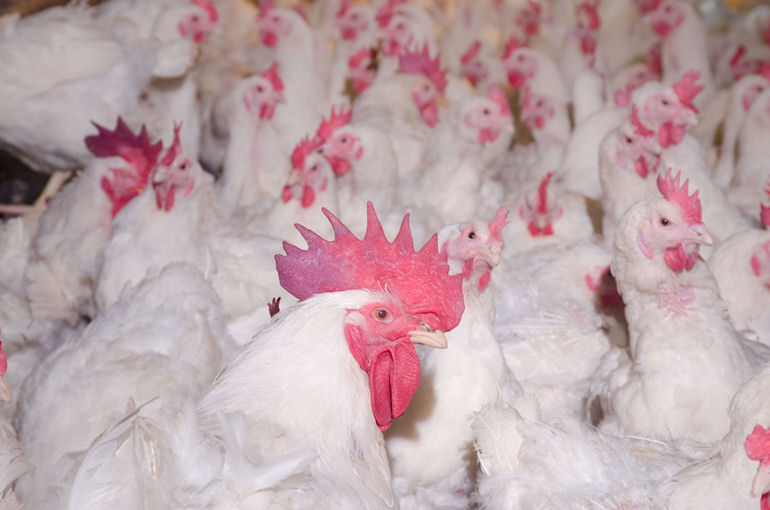USDA publishes final GIPSA rule
New rules level playing field for farmers by proposing protections against most egregious retaliatory practices harming chicken growers.
December 14, 2016

The U.S. Department of Agriculture's Grain Inspection, Packers & Stockyards Administration (GIPSA) announced updated regulations to protect the rights of farmers. The Farmer Fair Practices Rules target the most harmful practices hurting farmers and clearly outline commonsense protections to restore fairness and reduce the burden for farmers seeking justice under the Packers & Stockyards Act.

USDA has published three final rules on how to better protect poultry farmers from unfair marketing practices. Photo source: USDA
"For years, American farmers have been calling for protections against the most damaging unfair and deceptive practices confronting family farms across the country," Agriculture Secretary Tom Vilsack said. "Poultry growers in particular are vulnerable to market risks and concentration in the processor market. All too often, processors and packers wield the power, and farmers carry the risk. Today, USDA is taking a big step toward providing the protections that farmers deserve and need."
The four largest processors in the poultry sector in this country control 51% of the broiler market and 57% of the turkey market. In part due to this concentration, poultry growers often have limited options for processors available in their local communities to contract with. An estimated 52% of growers have only one or two processors in their state or region to whom they can provide grower services. That means processors can often wield market power over the growers, treating them unfairly, suppressing how much they are paid or pitting them against each other, USDA said in a statement.
The new rules would level the playing field for farmers by proposing protections against the most egregious retaliatory practices harming chicken growers. USDA said the Farmer Fair Practices Rules are comprised of an interim final rule and two proposed rules to be published in the Federal Register.
The interim final rule will affirmatively establish the department's longtime position that it is not necessary to demonstrate that an unfair practice harms the entire market in order to prove a violation of the Packers & Stockyards Act. Such overly broad interpretations have put family farmers at a disadvantage for decades when pursuing their rights under the act.
The proposed rule regarding unfair practices would clarify what GIPSA views as practices that clearly violate the act and would establish criteria to protect the legal rights of farmers. The third proposal would establish criteria that GIPSA would consider in determining whether a live poultry dealer has engaged in a pattern or practice to use a poultry grower ranking system unfairly.
As an example of retaliatory practices, if a chicken grower attempts to organize other chicken growers to bargain for better pay or publicly expresses unhappiness with the way they are treated by a processor, processors could require growers to make investments that are not economically justifiable for the grower or can terminate contracts with little notice. Also, because in contract growing, the processors own the birds and provide inputs like feed, they can choose to provide poultry growers with bad feed or sickly birds that have a higher mortality rate, which cuts deeply into a grower's opportunity to earn income on those birds.
In hearings held in 2010, USDA heard from chicken growers who were promised a long-term business relationship but were soon bullied into signing narrower and narrower contracts until their business was unsustainable, who felt extorted into making expensive upgrades under threat of not being provided chickens to grow and who tried to explore opportunities with other processors but were met with intimidation and discrimination.
The Farmer Fair Practices Rules reflect feedback received in more than 60,000 comments and rigorous economic analysis conducted by GIPSA in collaboration with the USDA Office of the Chief Economist. GIPSA is providing an opportunity for additional comment on all of the rules to ensure that the public has a robust opportunity to engage in the regulatory process.
Copies of the Farmer Fair Practices Rules (as transmitted to the Federal Register) can be viewed on the GIPSA website.
You May Also Like


.png?width=300&auto=webp&quality=80&disable=upscale)
